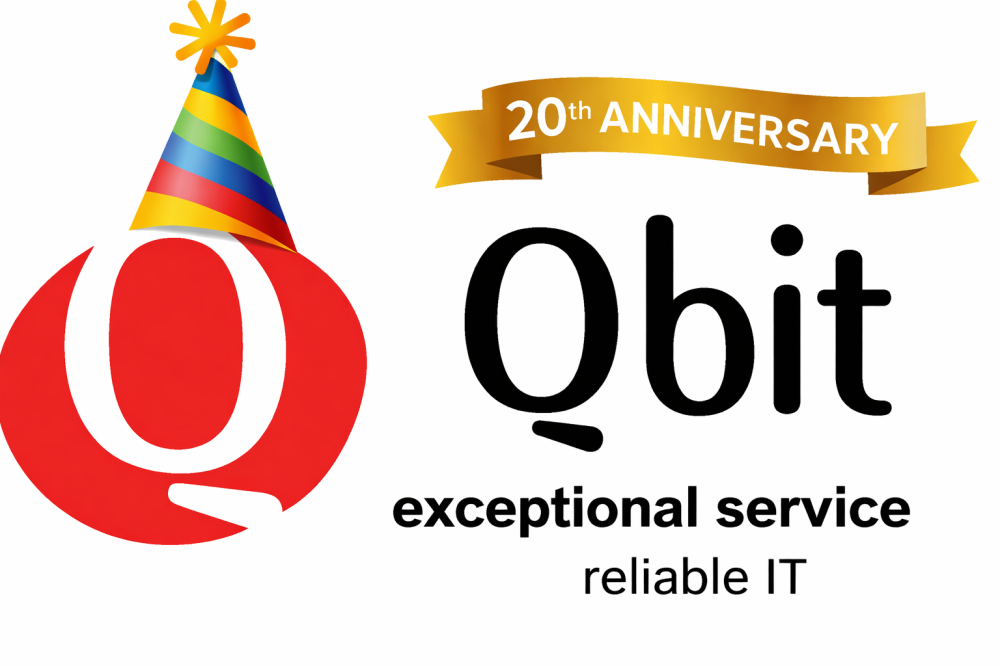In today’s digital landscape, efficient email communication is vital for businesses, but it also exposes them to a growing threat: Business Email Compromise (BEC) attacks.
At Qbit, we specialise in IT Support and Managed Services and are committed to helping you safeguard your organisation against this menace.
1. Unmasking the Anatomy of BEC Attacks
Business Email Compromise attacks are cunning and deceptive. Cybercriminals meticulously research their target organisations, gathering information about key personnel, business relationships, and ongoing transactions.
Armed with this data, they impersonate executives, suppliers, or trusted partners via email. These fraudulent emails mimic the sender’s style and use spoofed email addresses resembling a legitimate email account.
The attacker often requests urgent actions such as bank transfers, invoice payments, or confidential data sharing to fraudulent bank accounts. Employees, believing they’re communicating with a trusted source, may unknowingly comply, resulting in significant financial losses or data breaches.
2. The Alarming Prevalence of BEC
BEC attacks have skyrocketed in recent years, becoming one of the most pressing cybersecurity threats for businesses across all sizes and industries. In 2020, the FBI’s Internet Crime Complaint Centre (IC3) reported BEC losses exceeding US$1.8 billion, making it one of the costliest cybercrimes. These attacks target a wide range of sectors, including finance, healthcare, manufacturing, and technology.
The COVID-19 pandemic further exacerbated the BEC attack threat as remote work increased reliance on email communication. Cybercriminals exploited the uncertainty, making employees more susceptible to phishing scams and fraudulent requests.
3. Strategies for Prevention and Mitigation
To shield your organisation from BEC scams and attacks, it’s crucial to implement robust prevention and mitigation strategies.
Employee Training
The first line of defence is educating your employees about BEC attacks and risks. Regular training programs can help them recognise suspicious emails and understand the importance of verifying sensitive requests.
At Qbit, we provide 3-minute training videos twice a month, accompanied by short questionnaires, to keep your staff vigilant and up-to-date on the latest in cybersecurity awareness.
Multi-Factor Authentication (MFA)
Enabling MFA for email accounts significantly reduces the risk of unauthorised access. Even if an attacker obtains login credentials, they won’t access the account without the second authentication factor.
Email Authentication Protocols
Implement email authentication protocols like SPF, DKIM, and DMARC to verify email sender authenticity and prevent spoofed emails from reaching inboxes. Qbit can handle the setup process for your company.
Verification of High-Risk Transactions
Implement strict verification processes for high-risk transactions, such as wire transfers or sensitive data sharing. Require multiple levels of approval and confirm requests through alternative communication channels before proceeding. A brief phone call to verify transactions can save your company thousands.
Qbit Can Help Safeguard Your Business
Business Email Compromise remains a persistent and evolving threat that poses significant financial and reputational risks to organisations. Understanding the anatomy of BEC attacks, recognising their growing prevalence, and implementing robust prevention and mitigation strategies are crucial steps in safeguarding your business.
Qbit can help your business every step of the way and ensure you have the right systems and processes in place to prevent business email compromise. Contact us today to learn more.


